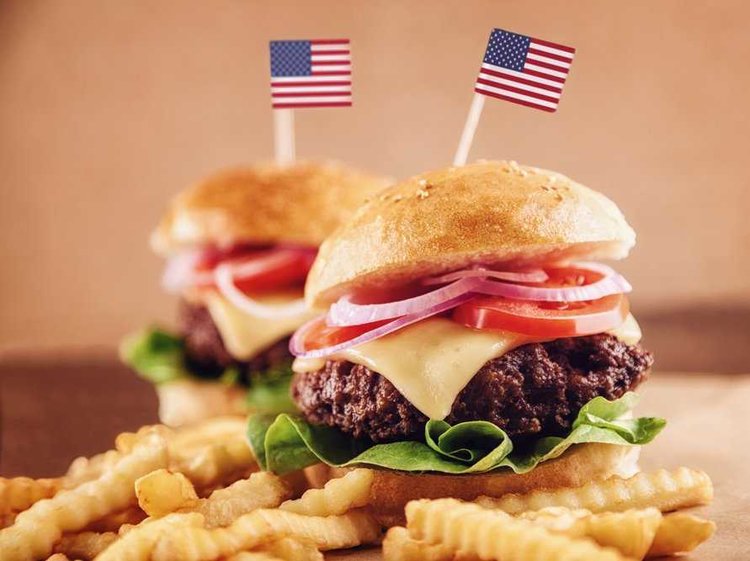When Ashleigh Shanti, 29, journeyed across the country on a six-month sabbatical final year, she decided that her next step as a chef needed to satisfy an essential preference: cooking food that celebrated her background as a black lady from the South and rebuffed assumptions approximately what that meals may be.
For hummus, she changed chickpeas with black-eyed peas, and in preference to tahini, used fermented benne seeds, an African staple. Her cabbage pancake played on okonomiyaki, a conventional Japanese dish. Her buttermilk cornbread soup paid tribute to her grandmother, who could place leftover crumbs of cornbread into buttermilk and drink it.
Those are simply some of the dishes featured at Benne on Eagle, in Asheville, N.C., that has helped Ms. Shanti end up one of the many black chefs throughout the USA who are considered new leaders inside the food world making their voices heard in new approaches. These cooks have beaten the notion that the meals they cook dinner must be rooted inside the American South.

At the equal time, they’ve driven their manner past the Eurocentric traditions that many absorbed in culinary college. They are reflecting Africa and its diaspora in their kitchens, using techniques from locations like Nigeria, Brazil, Morocco, Trinidad, and Tobago, and components like conch, berbere, fonio, and cassava. In culinary college, I found out to cook at a very high level,” stated JJ Johnson of Henry at Life Hotel eating place in Manhattan. “In Ghana, I learned who I changed into and what I ought to be doing with my existence.”
The spotlight, many say, is long past due. Black cooks have traditionally visible their meals and strategies co-opted, getting little credit score for their effects on America’s culinary traditions. “There have always been black fingers in American food,” said Jerome Grant, the chef at Sweet Home Café inside the National Museum of African American History and Culture.
But this new forefront is working to ensure that its ascent is extra than a passing moment.
“It’s up to us to be obvious with our records and our techniques, and pass along to the following era,” stated Mashama Bailey, government chef and partner at The Grey in Savannah, Ga., and the winner of this yr’s James Beard award for Best Chef: Southeast. “We were given to kind of strike while the iron’s warm right now.”
[Race affects our lives in countless ways. To read more provocative stories on race from The Times, sign up here for our weekly Race/Related newsletter.] Last year, simply over 17 percentage of cooks and head chefs had been black, about 5 percentage points better than their representation inside the entire painting force, according to the Bureau of Labor Statistics. The wide variety of black-owned eating and drinking institutions extended with the aid of almost 50 percent between 2007 and 2012, keeping with an evaluation of census statistics through the National Restaurant Association.
And even though black chefs remain underrepresented in excellent dining, they’re getting new popularity. Before closing 12 months, black cooks had gone 14 years without triumphing in any of the quality chef or superb restaurant categories of the James Beard awards — the restaurant enterprise’s Oscars. But during the last two years, six black chefs have gained in the one’s categories.
The united states of America’s wide recognition of racial equality and the political communique around uplifting marginalized communities have additionally helped to boom the visibility and possibilities that black chefs are receiving, numerous stated. Technology and social media have allowed them to sell themselves, even if no one else would. And they may be benefiting from greater diners being willing to discover unfamiliar meals. There’s a form of this motion that’s going on swiftly where black cooks are at the helm,” Ms. Shanti said. “People are paying attention. I experience like that’s really extraordinary. I want to be a part of that.
Yet even in this moment of focus, many black chefs, including those who’ve received awards and praise, say they once in a while nevertheless experience boxed in. Diners frequently look past them when asking to praise the chef. Eyes nevertheless move wide when human beings see them cooking Mexican, Japanese, or pretty much something that’s now not taken into consideration soul food. They nonetheless have to navigate the same racial politics as other black specialists.
Kiki Bokungu Loya, a co-proprietor of Folk, a cafe in Detroit, said that even in her very own eating place, “people simply look right via me to the primarily white male” to discover a person in authority. They additionally expect that she is responsible best for the African-influenced meals at the diverse menu.
If it doesn’t have an African peanut stew or fufu, they anticipate I won’t have created it,” said Ms. Louya, 36, who’s of Congolese descent. The key to keeping the present-day momentum, the chefs say, runs to cope with lingering obstacles and stereotypes. Restaurant traders and the food media continue to be in large part white, and people two sectors have an enormous impact on the destiny of cooks and eating places.








